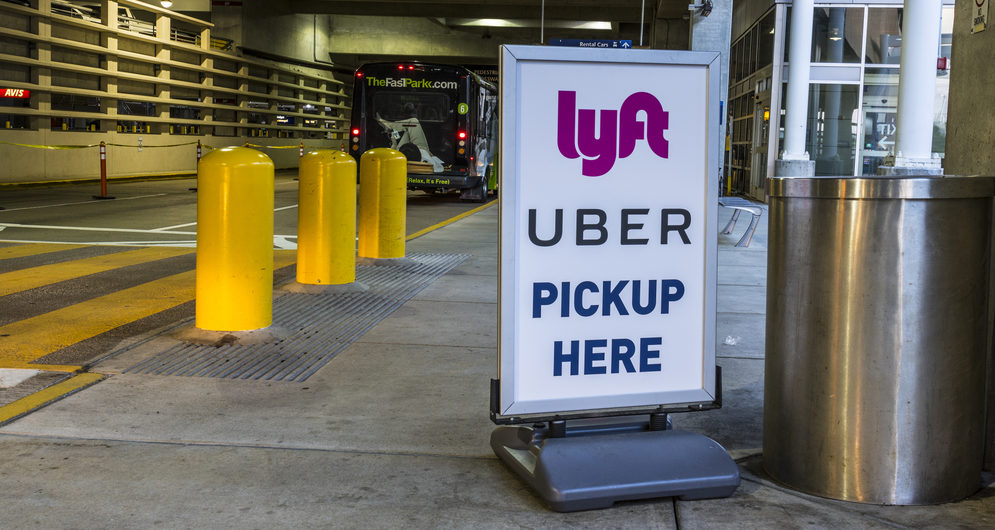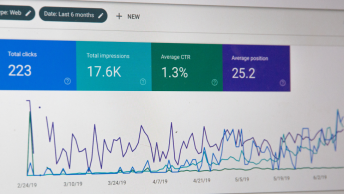Humanizing your brand certainly involves taking a stance on political and social issues. However, will that stance negatively or positively impact brand growth? This question is key if you’re trying to be a political brand. Keep reading to find out if being a political brand can work for you.
If you frequently read this blog, then you know the benefits of having a distinct set of brand values. These values are conveyed through your digital branding footprint and expressed through your products, services, and communications to your audience. There will come a time when your consumers expect you to stand up for your stated values enough when potential profits are at risk.
Is this something you can handle? Is it worth the risk to become a political brand?
Should You Be A Political Brand?
Before you contemplate your answer to the question above, I want to dispel a common myth that many organizations I’ve worked with had: Loyalty is important for sustaining current demand, but not for growing the brand.
It’s important to note as the objective for ‘politicizing’ your brand may miss the mark. For instance, taking a political stance may increase consumer loyalty but not sales. Loyalty just keeps a brand even with current demand by having consumers make repeat purchases. To drive growth, loyalty must inspire more purchasing.
Consider a customer who consistently buys the same tire brand. The demand for that brand stays the same for each purchase.
That’s not growth.
The notion of loyalty as a driver of growth doesn’t make sense in most categories.
If that customer replaces tires more frequently than is necessary or buys a fifth or a sixth tire for a car, that would be growth through loyalty. But there’s no logical reason for any customer to possess this purchase behavior. Right?
This is the main reason why you should not consider being a political brand if you’re focusing on increasing sales. Activating your customer base in this fashion may increase in loyalty and not sales.
The Pros & Cons of A Political Brand
Conversely, keeping silent and not taking a political stand can negatively affect your brand in some cases.

For a great example of the potential costs of staying silent, take a look at Lyft’s and Uber’s responses to President Trump’s executive order.
Lyft
Lyft reacted by publicly opposing the order and pledging US$1 million to the American Civil Liberties Union.
Banning people of a particular faith or creed, race or identity, sexuality or ethnicity, from entering the U.S. is antithetical to both Lyft’s and our nation’s core values. We stand firmly against these actions, and will not be silent on issues that threaten the values of our community. – Lyft
Uber
Uber was more equivocal. In a Facebook post, CEO Travis Kalanick acknowledged concerns and said he would raise the issue
“this coming Friday when I go to Washington for President Trump’s first business advisory group meeting.” – Travis Kalanick, CEO, Uber
Lyft connected with consumers directly with their efforts to not only publicly oppose the action but to help fight against it by pledging $1 million to the ACLU. While Uber’s CEO said he would “raise the issue” during his trip to Washington, DC.
This action caused a disconnect with consumers as the attempt was hypocritical for a company that claims to be “guided by core values” to take a direct stance on the issue. Something that rival Lyft did immediately.
Overall, Uber’s reaction to the travel ban caused consumers to question the intent while Lyft’s reaction reinforced expectations and built trust and enhanced relationships with customers.
SEE ALSO: 4 Reasons Why Consumers View Brands As Relationships
Why Consumers Will Boycott A Political Brand
Activists quickly take victories not won at the polls and prosecute them all over again in the marketplace. Particularly, during the last election cycle, boycotts sprung up left and right. Brands that made missteps or showed proper allegiance were faced with boycotts.
Dozens of companies have been singled out for boycotts largely because of ties to or support of President Donald Trump, including Nordstrom, MillerCoors, Amazon, and NASCAR.
Macy’s has been attacked from both sides, first for pulling Trump-branded merchandise, then for not pulling Ivanka Trump’s products.
57 percent of consumers are more likely to buy from or boycott a brand because of its stance on a social or political issue. – Edelman
How Your Brand Can Address Politics
For any brand, the safest bet is to simply ignore politics. Unfortunately, consumers are now taking aim at brands that avoid taking a stance on political issues.
For that reason alone, you should at least consider or prepare to take a stance on issues affecting the general public.
Key Questions When Developing A Political Brand:
- Who are you? It’s often best to think of your brand as a character or person. Once developed, where would that character or person stand politically?
- What makes you unique? Once you figured out who you are, will you take a stance that may pose a risk to your business?
- Who are you speaking to? Who does your brand want to serve? What are their interests? What do they care about?
- How are you communicating your values? Are your customers getting the message? Have they bought-into your values?
- What investments are you making in the communities you serve? Is this a part of your mission? If not, should it be?
SEE ALSO: How to Tell Your Digital Brand Story
Politics and lifestyles can no longer be treated separately. Lifestyles are the central focus of brands, so as politics and lifestyles blend, brands will need to consider this when addressing consumers.
Final Thought on Developing A Political Brand
When considering developing a political brand, you must be willing to stand up for your stated, demonstrated, or conveyed core values. Don’t make your fight a political one. Understand that the issues being discussed in society are things like the environments, equality, and immigration.
These issues naturally have a political aspect, but the issues remain what your brand should be focused on—not the political sides of those issues.
Developing a political brand doesn’t have to mean taking a political stance on every issue that dominates the media cycle. Have an open-mind and focus on what’s most important to your customers.
If you do it right, you wouldn’t have to be concerned with politicizing your brand. You can focus on meeting the expectation of your consumers. No politics involved.











